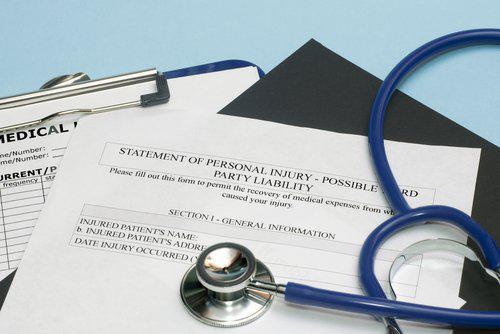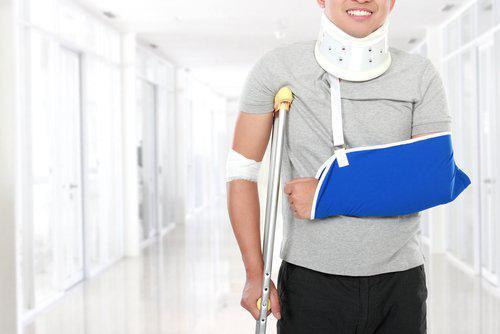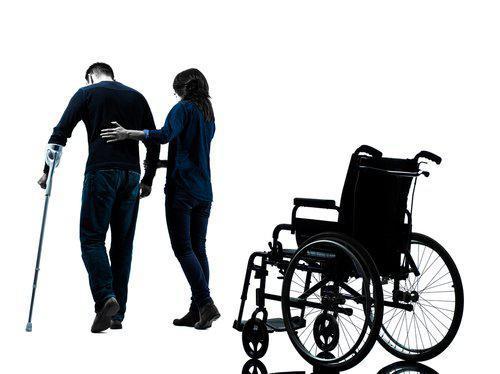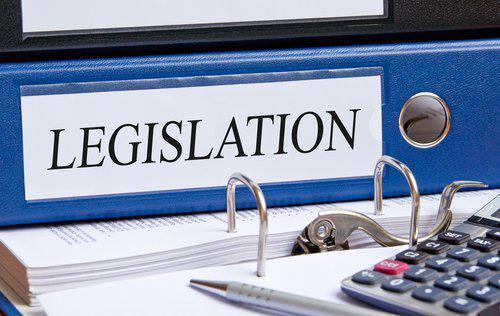Recent Blog Posts
Equine Immunity Statute: Suing for Injuries Caused by Equine Activities
 Activities involving horses in Wisconsin are referred to as equine activities and the Wisconsin legislature has determined that these are inherently risky activities. As such, in many circumstances, if you are injured while riding a horse or at a horseback riding facility, you may not be able to sue anybody.
Activities involving horses in Wisconsin are referred to as equine activities and the Wisconsin legislature has determined that these are inherently risky activities. As such, in many circumstances, if you are injured while riding a horse or at a horseback riding facility, you may not be able to sue anybody.
What Does “Inherently Risky” Mean?
Inherently risky means there is a danger or condition that is an integral part of equine activities including all of the following:
- The propensity of a horse to behave in a way that may result in injury or death to a person on or near it;
- The unpredictable nature of a horse’s reaction to movement and sound;
- A collision with either an animal or object; and
- The potential for a person who is participating in a horse-related activity to act negligently, to fail to control the horse, or to not act within his or her ability.
Wisconsin Immunity Law and Personal Injury Lawsuits
 Generally speaking, when you suffer a personal injury because of the negligence or wrongdoing of another person, tort laws in Wisconsin are there to protect you and provide you with a means to recover for your losses. This means that in most circumstances, you will be compensated for the injuries and damages you have suffered by the negligent party, who will be held responsible under the law for negligent behavior.
Generally speaking, when you suffer a personal injury because of the negligence or wrongdoing of another person, tort laws in Wisconsin are there to protect you and provide you with a means to recover for your losses. This means that in most circumstances, you will be compensated for the injuries and damages you have suffered by the negligent party, who will be held responsible under the law for negligent behavior.
In some cases, there are impediments to getting justice and recovering your damages in a court of law. One such circumstance is when an immunity law is used as a shield, and it acts to protect the irresponsible behavior of the wrongdoer and shifts the costs of the damages and injuries that were caused by the wrongdoer over to the innocent victim.
What Are Immunity Laws?
What Are Punitive Damages and How Do They Work in Wisconsin Personal Injury Cases?
 In personal injury cases, there are several different types of damages you may potentially be able to recover. One type of damages that is not well understood is punitive damages. These are a special kind of damages that are not available in all personal injury cases. They are only for extreme situations.
In personal injury cases, there are several different types of damages you may potentially be able to recover. One type of damages that is not well understood is punitive damages. These are a special kind of damages that are not available in all personal injury cases. They are only for extreme situations.
The Purpose of Punitive Damages
Most legal damages are designed to pay a party back for what they have lost due to the actions of another party. Money is usually the only way our court system has of making people “whole” after an accident. But, punitive damages, as the name suggests, are designed to punish defendants who acted beyond the normal boundaries of acceptable behavior.
Punitive damages are also designed to deter other people and companies from acting badly.
Personal Injury Cases: How Long Do You Have to File?
 After an accident or injury, some individuals choose not to file a personal injury case. It may be that, initially, the accident or injury seems inconsequential, or it could be a simple case of not understanding one’s rights to seek compensation. Whatever the reason, it may eventually come to light that the implications are further reaching than initially realized and, in order to ensure proper care and medical treatment, the pursuit of a personal injury lawsuit may become essential. The real question is, can you still file?
After an accident or injury, some individuals choose not to file a personal injury case. It may be that, initially, the accident or injury seems inconsequential, or it could be a simple case of not understanding one’s rights to seek compensation. Whatever the reason, it may eventually come to light that the implications are further reaching than initially realized and, in order to ensure proper care and medical treatment, the pursuit of a personal injury lawsuit may become essential. The real question is, can you still file?
Statute of Limitations
A statute of limitations provides would-be defendants in personal injury cases with a time limitation on how long they may be held liable. This statute varies greatly from state to state, ranging anywhere from one to six years. For example, North Dakota offers six years to automobile accident victims while only plaintiffs in Louisiana only have a year to file. Wisconsin’s statute of limitations is three years.
The Concerning and Undisclosed History of Cruise Ship Accidents and Injuries
 When most people think about a cruise ships, they imagine exotic locations, excellent food, and lots of rest and relaxation. Of course, this is exactly how it unfolds for most, but for some, the cruise experience is more of a personal injury nightmare than a vacation. It is most disturbing how few passengers are aware of the risk, and how cruise lines have taken every possible precaution to protect themselves from a lawsuit.
When most people think about a cruise ships, they imagine exotic locations, excellent food, and lots of rest and relaxation. Of course, this is exactly how it unfolds for most, but for some, the cruise experience is more of a personal injury nightmare than a vacation. It is most disturbing how few passengers are aware of the risk, and how cruise lines have taken every possible precaution to protect themselves from a lawsuit.
Slips, Trips, and Falls Most Frequent Injuries Aboard Cruise Ships
Although there are other types of personal injuries aboard cruise ships — such as the one suffered by a man who recently was awarded $21.5 million after being hit by an automatic door — the most frequently seen are slips, trips, and falls. Though so underreported that statistics are inconclusive, they are caused by everything from slippery surfaces to objects left in walkways to design issues aboard ships.
New Study Indicates Children with ADHD May be at Higher Risk for Injury at Intersections
 Because they are still learning the rules of the road, and because their judgement skills are still developing, all children riding bicycles have an elevated risk of injury at intersections. However, a new study suggests that, because they are typically more impulsive and have trouble paying attention, children with ADHD may be at an even higher risk of being involved in an accident. Knowing this, parents may wish to refresh their children on the basics of street safety and, in some cases, continue to monitor them as needed.
About the Study
Published in the December 2015 issue of the Journal of Child Psychology, the study analyzed the response time and decision making abilities of 27 children with ADHD and 36 children without ADHD as they “crossed” a simulated intersection on stationary bicycles. Researchers found that, while all children crossed the street with similar-sized gaps between cars, children with ADHD tended to stall and typically had less time to get across safely. Moreover, children with ADHD seemed to struggle more when it came to readjusting after being exposed to heavier traffic. Rather than wait for wider gaps, they continued to cross when gaps between cars were smaller, which increased their risk of an accident.
Improving Traffic Safety for All Children
Each year, nearly 400,000 children are treated in emergency rooms for bicycle-related injuries. Children also account for approximately 5% to 10% of all road traffic deaths in the United States each year. To help keep them safe, parents should monitor children and regularly discuss the basics of proper bike and traffic safety.
Basic Traffic and Bicycle Safety for Young Children:
Because they are still learning the rules of the road, and because their judgement skills are still developing, all children riding bicycles have an elevated risk of injury at intersections. However, a new study suggests that, because they are typically more impulsive and have trouble paying attention, children with ADHD may be at an even higher risk of being involved in an accident. Knowing this, parents may wish to refresh their children on the basics of street safety and, in some cases, continue to monitor them as needed.
About the Study
Published in the December 2015 issue of the Journal of Child Psychology, the study analyzed the response time and decision making abilities of 27 children with ADHD and 36 children without ADHD as they “crossed” a simulated intersection on stationary bicycles. Researchers found that, while all children crossed the street with similar-sized gaps between cars, children with ADHD tended to stall and typically had less time to get across safely. Moreover, children with ADHD seemed to struggle more when it came to readjusting after being exposed to heavier traffic. Rather than wait for wider gaps, they continued to cross when gaps between cars were smaller, which increased their risk of an accident.
Improving Traffic Safety for All Children
Each year, nearly 400,000 children are treated in emergency rooms for bicycle-related injuries. Children also account for approximately 5% to 10% of all road traffic deaths in the United States each year. To help keep them safe, parents should monitor children and regularly discuss the basics of proper bike and traffic safety.
Basic Traffic and Bicycle Safety for Young Children:
- Do not play in or near the road;
Injured Person's Duty to Mitigate Damages
 If you have sustained serious injuries in a car accident, it may take weeks, months, or even years to fully recover. During the course of your recovery, your doctors and physical therapists will likely give you instructions to follow and things to work on at home. Did you know skipping these exercises or failing to follow your doctor’s advice could cost you money on your accident claim?
When the Other Side Asks about Your Recovery
While many car accident cases are settled long before going to trial, others end up in different parts of the justice system. This happens when an insurance company refuses to offer a reasonable settlement, or when the statute of limitations is close and a lawsuit must be filed to preserve your rights.
After a lawsuit is filed, the lawyers for the other side will want to start the discovery process. This includes requesting copies of any of your medical records they do not already have, and requesting you to undergo a deposition.
During the deposition, you will be sworn to tell the truth. The lawyer for the other side will ask you questions. One of the areas they will ask about is your recovery. You may be asked about what exercises or stretches you were instructed to do. You may be asked if you did those stretches.
Your Responsibility to Mitigate Damages
Under the law, you have the right to be compensated for your injuries when they were caused by the negligence of someone else, but you also have a duty to mitigate those damages. This means you have to make the effort to keep things from getting worse than they are.
Lawyers for the other side in a personal injury lawsuit may be able to successfully argue that if you failed to listen to your doctor and do your exercises or stretches at home, you failed to mitigate your damages. If a judge or jury believes this argument, then the amount of damages you recover can be reduced.
If you or someone you love has been hurt in a car accident, you need to talk with a knowledgeable Milwaukee personal injury lawyer. You only have so much time to bring a claim. Call the law firm of Gimbel, Reilly, Guerin & Brown, LLP at 414-271-1440 today to setup your consultation.
If you have sustained serious injuries in a car accident, it may take weeks, months, or even years to fully recover. During the course of your recovery, your doctors and physical therapists will likely give you instructions to follow and things to work on at home. Did you know skipping these exercises or failing to follow your doctor’s advice could cost you money on your accident claim?
When the Other Side Asks about Your Recovery
While many car accident cases are settled long before going to trial, others end up in different parts of the justice system. This happens when an insurance company refuses to offer a reasonable settlement, or when the statute of limitations is close and a lawsuit must be filed to preserve your rights.
After a lawsuit is filed, the lawyers for the other side will want to start the discovery process. This includes requesting copies of any of your medical records they do not already have, and requesting you to undergo a deposition.
During the deposition, you will be sworn to tell the truth. The lawyer for the other side will ask you questions. One of the areas they will ask about is your recovery. You may be asked about what exercises or stretches you were instructed to do. You may be asked if you did those stretches.
Your Responsibility to Mitigate Damages
Under the law, you have the right to be compensated for your injuries when they were caused by the negligence of someone else, but you also have a duty to mitigate those damages. This means you have to make the effort to keep things from getting worse than they are.
Lawyers for the other side in a personal injury lawsuit may be able to successfully argue that if you failed to listen to your doctor and do your exercises or stretches at home, you failed to mitigate your damages. If a judge or jury believes this argument, then the amount of damages you recover can be reduced.
If you or someone you love has been hurt in a car accident, you need to talk with a knowledgeable Milwaukee personal injury lawyer. You only have so much time to bring a claim. Call the law firm of Gimbel, Reilly, Guerin & Brown, LLP at 414-271-1440 today to setup your consultation.
Source:
New Tort Reform Bill Proposed on Collateral Source Payments Hurts Responsible People

Recently, the Republicans in the State House and Senate have proposed yet another radical change to the landscape of Wisconsin law. This proposal, AB-539/SB-405, risks the benefits of every Wisconsin citizen across the state who pays for insurance. What does “collateral source” mean and why is it important?
If you are injured in an accident by another party, whether it be a person or a business, you are entitled to be compensated for your medical bills that were incurred due to the accident. Now, if you have insurance through your job or have paid out of pocket for health or car insurance, those premiums you have paid require the insurance companies to pay some or all of your medical bills in accordance with your policy agreement. Your insurance companies often have negotiated agreements or other deals with healthcare providers to provide discounts in exchange for their payments (and presumably network approval of their facility). That is a benefit the consumer reaps by fulfilling their personal responsibility in obtaining and maintaining insurance.
Safety Factors in Wisconsin Snowmobile Accidents
 Wisconsin has one of the highest national averages for snowfall and accumulation, which makes it a prime location for snow sports and recreational activities, like snowmobiling. Unfortunately, these activities are not without risk, including the potential for a fatal accident. Proper gear, safety knowledge, and proper equipment maintenance can help reduce those risks, but there are still fatalities each year. Information from the Department of Natural Resources (DNR) indicates that alcohol consumption and/or excessive speed are often a factor.
Wisconsin has one of the highest national averages for snowfall and accumulation, which makes it a prime location for snow sports and recreational activities, like snowmobiling. Unfortunately, these activities are not without risk, including the potential for a fatal accident. Proper gear, safety knowledge, and proper equipment maintenance can help reduce those risks, but there are still fatalities each year. Information from the Department of Natural Resources (DNR) indicates that alcohol consumption and/or excessive speed are often a factor.
Sources:
Study Finds Falls the Number One Cause for Ocular Trauma
 A recent study reveals that falls are the number one cause of serious eye injuries. Fighting came in as the number two reason why eye injuries occur. The study results were recently presented at the annual meeting of the American Academy of Ophthalmology (AAO). Statistics show that over the past decade, eye injuries caused by falls were responsible for almost 8,500 hospitalizations.
A recent study reveals that falls are the number one cause of serious eye injuries. Fighting came in as the number two reason why eye injuries occur. The study results were recently presented at the annual meeting of the American Academy of Ophthalmology (AAO). Statistics show that over the past decade, eye injuries caused by falls were responsible for almost 8,500 hospitalizations.
The study was conducted by researchers from Johns Hopkins University, who analyzed data collected from almost 47,000 patients who had been diagnosed with ocular trauma. The types of ocular trauma included the eye being pierced by some type of object and orbital fractures. The research team looked at the type of injury, cause of the injury, how long the patient remained in the hospital, and what the total cost of that hospital stay was. They also separated patients by age.







